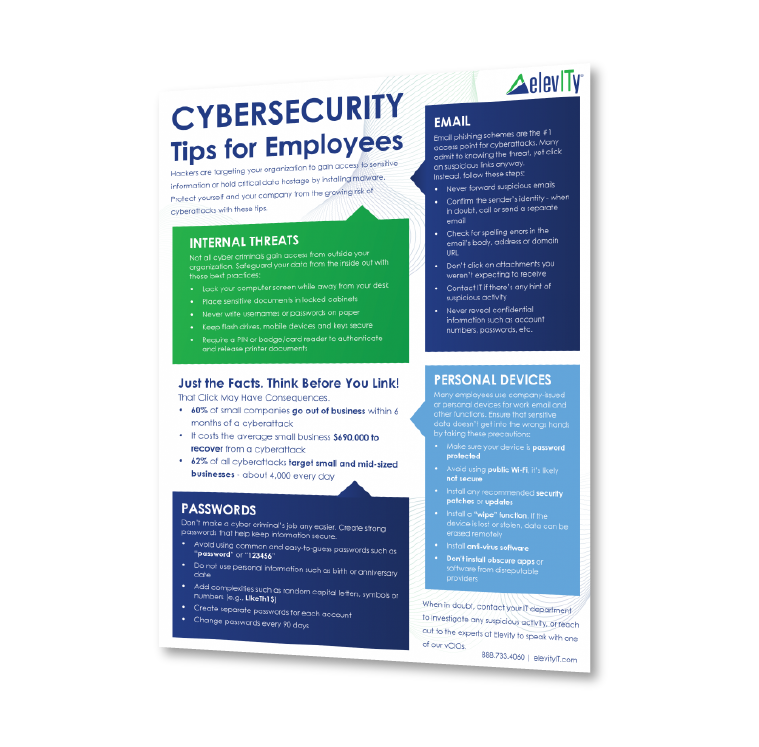When you look at your company’s technology, do you know if your data is secure? If a disaster strikes, can you keep your business running? Can you add new technology quickly to meet demand? Most importantly, do you have a long-term strategy to address your challenges?
A Chief Information Officer (CIO) can bring strategic technology planning to a modern business. In many enterprise organizations, this person has an advanced engineering degree or executive background, earns at least a six-figure salary and often has a seat on the executive board.
If you are a small to medium sized business trying to grow in today’s business environment, hiring a CIO is a luxury that most can’t justify. But it is possible to get the strategic advice of a CIO without adding a full-time executive on your staff. It’s called a Virtual CIO, or vCIO, and it means you can have experienced, expert advice to align technology with your business needs.
Today, we are going to explain how a vCIO offers strategic vision and a technology roadmap for growing businesses.
A DAY IN THE LIFE OF A vCIO
It’s easy for a business to take a reactive approach to technology management. When computers get old or slow, most companies look for a fix or throw money at the problem to buy newer equipment. But that is neither strategic nor cost-effective. We believe a business needs to have a technology roadmap and a long-term technology budget to succeed. A vCIO can provide all that and more.
Regardless of an organization’s size, it is hard for IT to get expert advice and differing perspectives for technology initiatives, offering impartial advice as a trusted advisor.
At Elevity, our vCIO is not a part of the sales process. They are a dedicated member of your team who will develop a deep understanding of your business objectives, spot misalignment in your technology deployment and develop a proactive roadmap for the future.
As mentioned above, a vCIO is not just one person; vCIO services should provide access to a team of experienced, executive-level advisors that live and breathe tech. If your institution is seeking insight into an emerging or existing technology, a vCIO delivers research and a broader perspective on changes occurring within the industry, or how it might impact your business.
SO, WHAT DOES A vCIO DO?
A vCIO should help your organization manage change and growth over time. For example, do you have a major business initiative you’re trying to implement in the next six months that relies heavily on technology? You will most likely need face time with a vCIO during the transition to help you stay on track and ensure success.
Once your project is up and running smoothly, however, your vCIO’s involvement will shift to more strategic planning and an oversight role or may focus on other business initiatives and technology challenges. The duties of a vCIO include:
- Formulating strategic IT goals
- Planning an IT budget
- Strategizing digital transformation initiatives
- Analyzing and reworking business processes
- Facilitating technology changes
- Proactive cyber security assessments
- Assisting with disaster recovery plans
- Ensuring regulatory compliance
- Improving overall business operations and streamlining processes
- Providing progress reports and recommendations
- Technology Roadmap
The benefits of working with a vCIO go far beyond cost savings. The benefits of a Virtual CIO is a long-term commitment to continuous improvement and planning. Most importantly, it delivers peace of mind knowing a top-level IT expert is partnering with you to navigate the ever-changing technology landscape as an adjunct executive to your leadership team.
We’ve outlined the top six benefits of a vCIO in our infographic below, so be sure to check it out. Then, reach out to discuss your technology challenges and to see if enlisting the help of a vCIO as part of a Managed IT solution is right for your business.








%20cropped.jpg)





